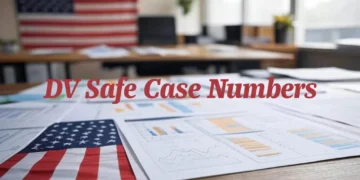Applying for the Diversity Visa Lottery is free, but winning comes with its own set of expenses. Many DV selectees are caught by surprise at the various fees and costs needed to actually obtain the green card and start a new life in the U.S. This guide breaks down every expense – from application to arrival – so you can plan ahead and avoid financial stress. Updated for 2025, it reflects the latest fees and offers tips to budget for each step.
Entry Stage – Free to Enter, But Prepare Early
- No Entry Fee: Submitting your DV Lottery application costs nothing on the official website. Be wary of any “agent” or site charging a fee – the U.S. government does not charge to enter the lottery. You can and should enter on your own for free.
- Potential Pre-Entry Costs: While the entry itself is free, ensure you have a few things ready:
- A valid passport (not currently required to enter the lottery as of DV-2025, but having one early is wise in case you win and need it for the visa). Obtaining or renewing a passport does have a cost, which varies by country.
- A digital photo that meets requirements – you might choose to take it yourself (minimal cost) or pay a photographer. If doing it yourself, use the free photo-check tool on DVLotteryUSA or similar to avoid costly mistakes.
- Tip: If you don’t have a passport, consider investing in one during the entry period. It’s not mandated to enter now, but it will be required later if you win. Starting this process early can save time (and expedite fees) later.
Selection Notification – Initial Steps (No Fee)
Congrats, you’re selected! Now the race begins to secure your visa before the program deadline (September 30 of the following fiscal year). At this stage, you won’t pay anything to submit the DS-260 immigrant visa form – it’s an online form to provide your personal and background information.
- DS-260 Application: Free to submit online. Take your time to fill it correctly – errors can cost you delays or even denial, but not money directly.
- Document Gathering: Start assembling documents you’ll need for your interview (birth certificate, police clearance, etc.). Some documents may have fees: for instance, police certificates or translations in certain countries might require a payment. Check local requirements – in many cases these fees are minor, but it’s good to include them in your budget.
- Tip: Make digital scans of all your documents. This saves money on printing and courier services, since you can email copies if needed or quickly reprint lost papers without extra trips.
Interview Preparation – Mandatory Fees and Expenses
This is where real costs kick in. Being selected only gives you a chance at a visa – you still must be approved by a consular officer. Key expenses at this stage include:
- Medical Exam (per person): Every DV applicant must undergo a medical examination by an embassy-approved physician. Costs vary worldwide, ranging roughly from $100 to $500 per person depending on the country and clinic. Globally, many people report about $200 as a typical cost for the basic exam. If you need additional vaccines or follow-up tests, those can add to the bill.
- Example: An applicant in South Asia might pay around $150, while one in Western Europe could pay $300 or more due to higher clinic fees. In the U.S., if adjusting status, costs can reach $400 including vaccinations. Always ask the clinic for a price list beforehand so you know what to expect.
- Tip: Ensure your vaccines are up to date before the exam. Bringing prior vaccination records can prevent paying for unnecessary vaccine shots. If you do need a vaccine, the panel physician can administer it (for an extra charge), but you might find it cheaper through a local public clinic beforehand if time allows.
- Visa Application Fee (per person): This is the fee for the actual immigrant visa and must be paid on the day of your interview to the U.S. consulate. As of 2025, the Diversity Visa fee is $330 USD per applicant. This fee is non-refundable, whether your visa is issued or not. A family of four, for example, will need to pay $330 × 4 = $1,320. It’s usually paid in local currency (at the consulate’s exchange rate) or in U.S. dollars cash.
- Plan to bring the required amount for each person attending the interview. If only the principal applicant is going, you pay for that person only; if spouse and kids are applying as derivatives, each pays $330.
- Tip: Double-check acceptable payment methods with your embassy. Most U.S. embassies accept cash and might accept credit cards, but have a backup (like cash) in case electronic payments aren’t available. Remember, never pay any DV fees before your scheduled interview at the embassy – all official fees are paid in-person to the consulate cashier.
- Travel to the Embassy: Unless you live in the city where the U.S. embassy is, you should budget for travel and possibly an overnight stay. Costs here depend on distance and local travel prices:
- Transportation: Could be as low as a bus fare, or as high as an international flight if you must travel to another country for the interview.
- Accommodation: Many interviews are early morning. If you need to arrive the day before, factor in a hotel night.
- Miscellaneous: Local transportation (taxis, rideshares, subway) to get to the medical exam and interview, meals during travel, and courier fees if the embassy will mail your passport back.
Post-Interview – After Approval, More Steps
If you and your family are approved for the diversity visas – congratulations! Now, a few final costs as you prepare to move:
- USCIS Immigrant Fee (per person): This is a separate fee paid to U.S. Citizenship and Immigration Services after visa issuance, before or shortly after you arrive in the U.S. It’s for processing and producing your physical Green Card. In 2024, this fee increased to $235 USD per person. Pay it online through the USCIS website; you won’t receive your actual Green Card until this fee is paid. For a couple, that’s $470; for a family of four, $940.
- Tip: Pay this fee as soon as you get your visa packet (even before traveling to the U.S.). That way, USCIS will start making your Green Card, and you’ll get it sooner after arrival. Delaying payment could mean waiting longer in the U.S. without the card (though your visa in the passport is proof of residency for one year).
- Airfare to the United States: One-way tickets can be a significant expense, especially for families. Prices vary widely based on your home country and destination in the U.S. For example, from East Africa or South Asia to the U.S., one-way economy fares might be $600–$1,200 per person. From Europe, perhaps $300–$800.
- If you need to sell belongings or ship items, factor those costs too. Many people moving opt to sell most items and travel light to save on shipping.
- Tip: Set fare alerts early. Once you have the visa in hand (valid for up to 6 months from your medical exam date), monitor flight prices. Being flexible with your travel date and route can save hundreds of dollars. Also, inform the airline you are moving on an immigrant visa – some allow extra baggage free for new immigrants.
- Initial Living Expenses: While not a fee paid to any government, it’s crucial to budget for your first few months in America. You’ll need money for housing, transportation, food, and other needs before you start earning an income. The U.S. government does not provide any financial assistance to DV immigrants upon arrival; you are expected to support yourself. In fact, during your interview you must demonstrate you won’t become a “public charge” (dependent on government aid). Consular officers may ask about your job plans or savings. Some applicants bring documents like bank statements or an Affidavit of Support (Form I-134) from a relative/friend, though this is not an official requirement for DV visas.
- Suggested Budget: Aim to have savings equivalent to 3–6 months of living costs in your U.S. destination. For instance, if moving to a low-cost city where you expect expenses of $1500/month, try to have $4,500–$9,000 available. In higher-cost cities, you may need more. This isn’t a formal requirement, but it will greatly reduce stress and help you settle in comfortably.
- Tip: Plan for big one-time expenses: an apartment security deposit (often 1 month’s rent), utility setup fees, buying basic furniture or a used car (if public transport is limited). Many new immigrants burn through savings quickly setting up a household, so budget an extra cushion if possible.
Summary of All DV Lottery Expenses
To visualize the overall costs, here’s a checklist of the major DV Lottery expenses per person:
- DV Lottery Entry: $0 to enter (free).
- Passport photos & printing: $5–$20 (if you hire services, otherwise negligible if done yourself).
- Passport acquisition (if needed): Varies ($50–$150 in many countries, if you didn’t already have one).
- Police Certificate fees: Varies by country (some free, others $10–$50).
- Document translation fees: Varies ($0 if you translate yourself or have a friend, or $20–$40/page via a service, only needed if required by the embassy).
- Medical Exam: ~$200 average (range ~$100–$500).
- Vaccinations (if missing): ~$0–$200 (some may be free under local healthcare, others charged per shot – e.g. ~$20–$100 each).
- Travel to Interview: Varies (domestic travel $20–$300; international up to $1000+ if required; lodging $0–$200).
- Visa Fee: $330 per person.
- USCIS Immigrant Fee: $235 per person.
- Airfare to U.S.: Varies widely ($300–$1200+ one-way per person).
- Initial Living Funds: Not a fee, but critical to have savings! Aim for a few thousand dollars minimum, more for families or expensive cities.
A single person might spend on the order of $1,000–$3,000 USD (not including personal relocation funds) from winning to landing in the U.S., while a family could easily need $5,000–$8,000 USD or more for all expenses and fees.
Money-Saving Tips for DV Winners
- Start Saving Early: If you regularly enter the DV lottery, set aside a small “DV fund” each year just in case you win. Even putting away $20 a month can accumulate by the time results come out. If you aren’t selected, you’ve built savings you can use for other goals (or keep it for next year’s attempt).
- Use Local Healthcare Options: Get required vaccines through local clinics or insurance before the medical exam if possible. For example, if your country offers free or low-cost immunizations (flu shot, COVID-19, etc.), take advantage rather than paying the panel physician.
- Shop for Airfare Deals: New immigrants often have flexibility on when to fly (as long as it’s before the visa expiration). Use that to your advantage by monitoring fares. Consider less expensive destination airports if feasible – for instance, flying into a smaller regional airport or a different major hub then taking a bus/train might cut costs.
- Seek Community Support: Many DV winners connect with alumni from their country who already moved to the U.S. They might offer temporary housing, job leads, or furniture donations. Engaging with expat or immigrant communities can ease the financial burden of initial setup. Just be cautious and verify any offers of help.
- Avoid Unnecessary Services: You do not need an immigration lawyer for the DV process in most cases – it’s straightforward enough to do on your own by following official instructions and reputable guides. Likewise, beware of “travel agencies” that offer to handle your move for a hefty fee. Save money by doing what you can DIY, and spend on the things that truly require payment (visa, medical, etc.).
Why Financial Planning Matters
Being mentally and financially prepared for these expenses can make the difference between a smooth journey to your new life and a stressful scramble. Every year, some DV selectees lose their chance because they can’t pay for something on time – for example, unable to afford the trip to the interview or the visa fee by the deadline. Don’t let that be you. By understanding the costs outlined in this guide, you can take steps to secure the necessary funds well ahead of time.
Keep in mind also that proving you can financially support yourself is part of convincing the consular officer to issue your visa. Even though DV winners aren’t required to have a formal sponsor or a job offer, you may be asked about your plan to live in the U.S. Showing that you’ve saved money, arranged a place to stay, or have someone to stay with, can only strengthen your case.
Bottom Line: The DV Lottery truly is a fantastic opportunity – 50,000 people each year win a chance at the American Dream. If you’re lucky enough to be selected, a bit of financial foresight will ensure you can actually seize that opportunity. Use this checklist of costs to budget your journey from the day you enter the lottery to the day you receive your Green Card. With the right preparation, you’ll step off the plane in the United States not only with dreams, but with a realistic plan and the resources to turn those dreams into reality.









In February 2025 I paid for the medical exam €570.00 in Frankfurt just for myself. Base cost (exam, X-ray, taxes): €440.00. Laboratory costs €130.00. Total: €570.00
Thanks for sharing the detailed breakdown, Albert!